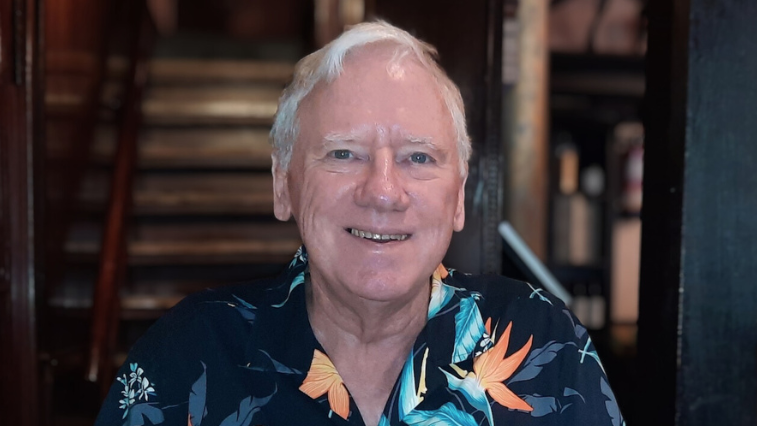Undergrad Scholarships
Creating Possibilities through Undergraduate Scholarships

In the late 1960s, a teenage Dan Reichel (BS ’73) discovered Caltech in the pages of a Reader's Digest Almanac. "I noticed that it was listed as the most selective college in the country," Reichel says. "That sounded like a great goal."
A dedicated supporter of his alma mater for the last 50 years, Reichel recently created an endowed scholarship to support future undergraduates. "Growing up in Michigan, Caltech felt like another world. I want other students from similar backgrounds to know it’s possible. My scholarship might not cover everything, but maybe it’s the difference-maker for someone on the fence."
Reichel endowed his scholarship after retiring as a senior computer systems analyst. He used a Qualified Charitable Distribution from his IRA to support the Institute and make a lasting impact.
“Dan’s commitment to helping students, like him, who may not have been able to attend without aid is admirable,” says Rick Robertson, executive director of the Office of Gift Planning, who worked with Reichel on establishing his scholarship.
Taking on a Challenge
Growing up in a Polish-American, blue-collar neighborhood in the Detroit area, Reichel’s interest in math was matched by his hunger for a challenge. Realizing he would need to push himself academically beyond what was offered at his high school, Reichel wrote to Caltech for textbook recommendations—an early sign of the initiative that would later carry him across the country to Pasadena.
His hard work and extra studying paid off when he applied for early decision and was accepted with a generous financial aid package. "My dad worked in an auto factory. Caltech said, 'We expect you and your parents to contribute $300 a year; we’ll cover the rest.' That made it all possible."
Reichel’s time as an undergraduate was marked by curiosity and a spirit of adventure, both in and out of the classroom. He ran cross country and track, explored the San Gabriel Mountains on foot, including an overnight hike with friends to Mount Wilson, and was a four-year member of the Glee Club.
"I auditioned even though I had never sung before. We memorized all of our music, which was a challenge, but it gave me the chance to travel all over the western US, even to Hawaii, for performances. It was a far cry from growing up in Detroit and just an incredible experience."
Building a Community
The small size of the Institute made faculty relationships personal and lasting. Reichel recalls being invited to dinners at professors' homes. He especially appreciated the support of professors Gerry Neugebauer, the Robert Andrews Millikan Professor of Physics, Emeritus, who invited Reichel to join his infrared astronomy team, and Robert B. Leighton, then-chair of the Physics, Mathematics and Astronomy division, who always found time to talk to and mentor Reichel.
"At a larger school, I might have gotten lost. At Caltech, faculty knew your name. They invited you to their homes. They made you feel like part of something," he says.
After graduation, Reichel was hired at IBM with the help of a fellow alum at the company who recognized that Reichel’s physics background would be of value. Even though there was a hiring freeze at the time, Reichel got the job working on fiber optics and surface acoustic wave devices. He would go on to earn a PhD in physics at the University of Michigan.
Making a Difference
Reichel volunteered the year after his Caltech graduation to make phone calls on behalf of the Institute to potential donors. As the years passed, he remained connected to Caltech—as a regional alumni leader arranging dinners and hosting visitors, as a volunteer fundraiser, and as a donor. "I always felt that Caltech gave me so much—not just financially, but in terms of opportunity. I started giving back early on, even if it was just a small amount. I wanted to do what I could."
His advice to fellow alumni? "We can’t all be wealthy, but we can still play our role. Caltech offers so many ways to make a difference."
“Caltech gave me the tools, the mentors, and the belief that I could make it. That’s a gift I want to pass on," Reichel says.